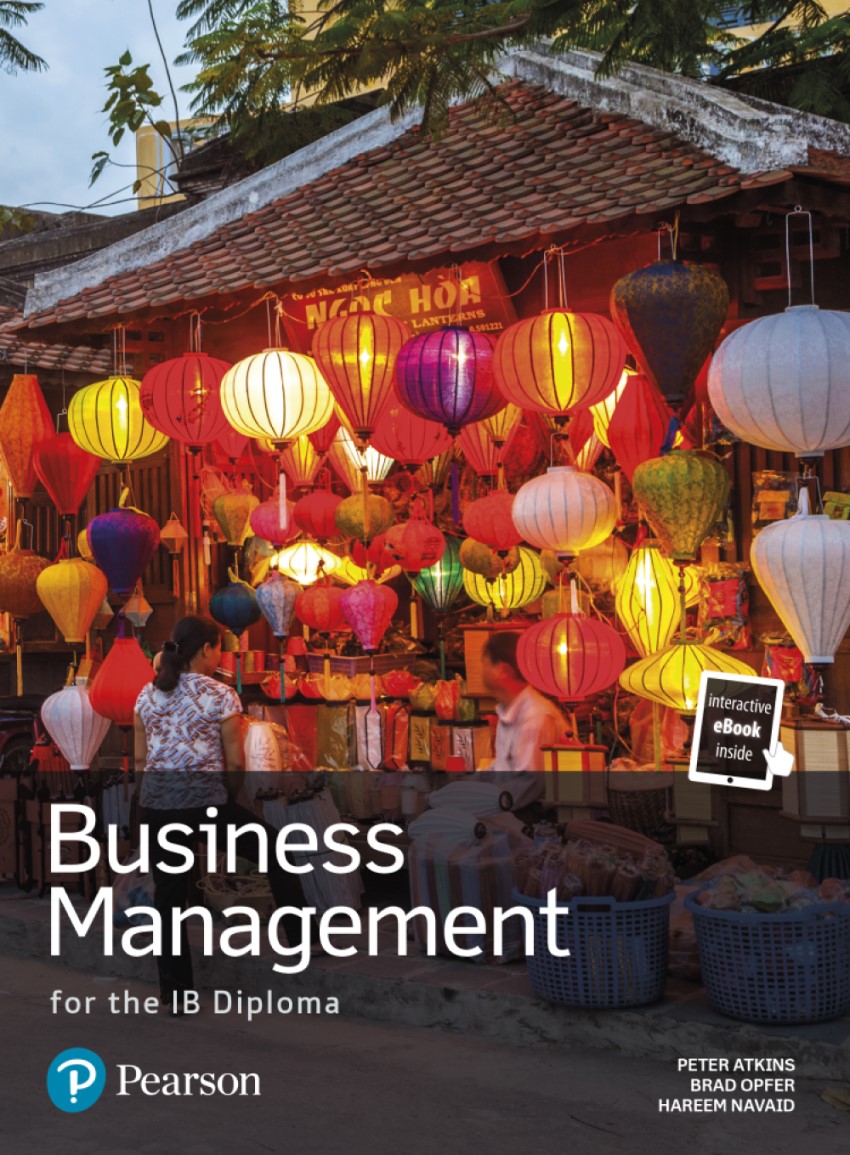
The IB has published the new Business Management Subject Guide. This will impact teaching and learning starting this autumn, with first exams in May 2024.
A new Subject Guide can be daunting, so Brad Opfer, co-author of Pearson’s brand-new Business Management for the IB Diploma textbook (publishing in March 2023) has come up with a summary of his top seven (an IB friendly number!) points to keep in mind.
1. Nature of the subject, aims, and objectives
The nature of the subject section in the Subject Guide outlines the main focus of the course, which is to encourage the development of ‘confident, creative, and compassionate change agents for business in an increasingly interconnected global marketplace’. The aims have been updated but the assessment objectives remain mostly unchanged from the previous guide (although AO3 has new grade band descriptors). There is a continued emphasis on inquiry, skill development, and three-dimensional teaching and learning of concepts, content, and context. Numerous examples and explanations are provided in the teacher support material.
2. Concepts
The number of concepts has been reduced from six to four: change, ethics, sustainability, and creativity. These concepts should continue to help students develop big understandings of the subject and make connections. The concept essay has been removed from exams. Instead, students will be explicitly assessed on one of these concepts within their internal assessment.
3. New content
The syllabus is organised into the same five units (introduction to business management, human resource management, finance, marketing, and operations management). Some notable additions to the new syllabus include greater emphasis on social enterprises, circular business models, statistical methods, the return of Porter’s generic strategies, and the addition of the subtopic management information systems in Unit 5.
4. Toolkit
The business tools that students will need to know at the AO2 and AO4 level are listed separately from the syllabus topics. This gives students a consolidated list to use for their IA and EE and should encourage integration of these tools throughout the course so that students can make important connections.
5. HL vs SL content
The content for the SL course remains a subset of the HL course, however there seems to be a greater distinction between the two courses when looking at the toolkit and syllabus. For example, methods of appraisal and recruitment are no longer part of the SL syllabus. In addition, some of the pricing strategies and motivational theories are for HL students only.
6. Internal assessment (IA)
While the difference between the content of SL and HL is vast, SL and HL students will complete a common 1800-word research project IA. The new IA is most similar to the existing SL IA with the additional requirement of integrating a key concept.
7. External assessment
There are several changes to the exams. Paper 1 will be common to both SL and HL, and students will only receive a pre-released statement three months prior to the exam instead of a full case study. The pre-released statement will include an outline of contemporary topics and terminology and the first two paragraphs of the case study. Paper 2 will have a larger quantitative focus and less choice. Lastly, HL students will now need to complete 3 papers. The new Paper 3 will ask students to identify the need being met, explain the challenges being faced, and recommend a plan of action based on stimulus material of a social enterprise.
What do you think?
Do you agree or disagree with this list? What are your observations and key takeaways from the new Subject Guide and syllabus? Head to our post on the Pearson International Schools Facebook page to share your thoughts and to join in with the conversation.
Discover our brand-new IB Diploma Business Management student book
Written and reviewed by experienced IB teachers for the 2022 Subject Guide for first assessments in 2024 – coming in print and digital format in early 2023. Download a free sample chapter now.
Sign up to receive our blog updates
Like what you read and want to receive more articles like this direct to your inbox? Subscribe to our blog and we’ll send you a fortnightly digest of the blog posts you may have missed, plus links to free resources to support your teaching and learning.

